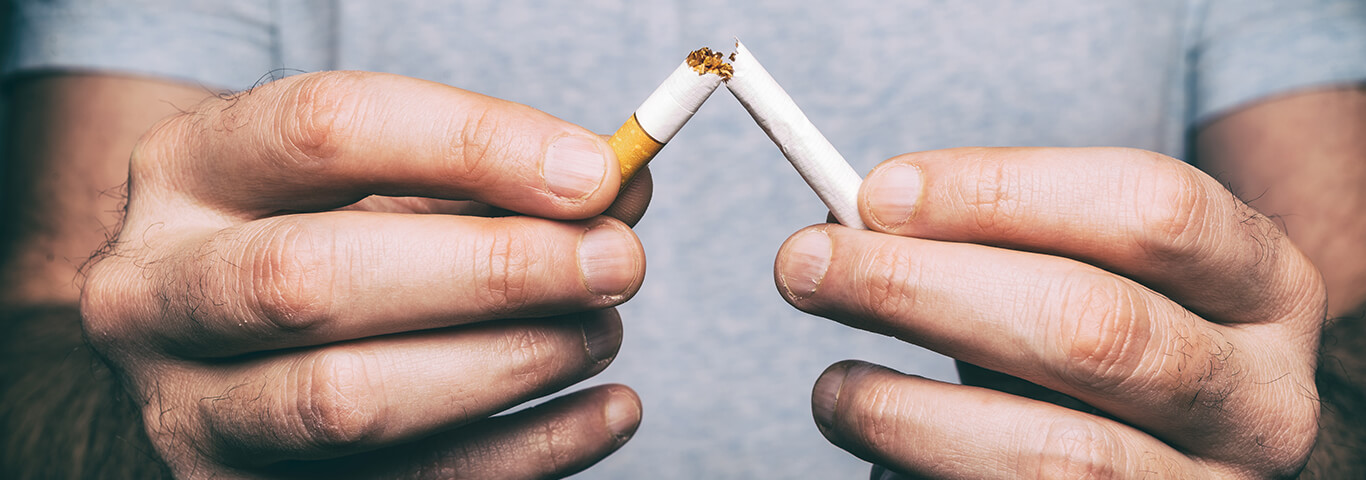If you’re ready to stop smoking—you have to do it for your own sake, and willingly—we have a few tips to help you.
First of all…
Set a quit date within 30 days. Mark your calendar, tell your friends and family about it so you don’t back out when the day comes, and sign a symbolic quitting contract (it’s not that silly at all; it does help with keeping your commitment to yourself).
Prepare your strategy. Are you going to use cessation aids such as patches, gum or drugs? Explore your options with your doctor.
Make a list. Write down all your reasons for quitting: for your health, for your children, to participate in a race this summer, to save money for a trip… On that subject, if you smoke one pack a day, quitting could leave you with about $3,000 or more in your pocket every year!
Clean house. Just before the big day, throw away everything related to smoking (ashtrays, lighters, matches, etc.) to increase your chances of success.
Then…
Avoid high-risk situations. Do you tend to smoke when you’re having a coffee or a drink? You may need to remove these triggers during the first few days. Similarly, avoid places where smokers gather, and forbid smoking in your home—your significant other can always go get some fresh air.
Beat the cravings. They will be intense at first, but remember that they will decrease after about two weeks and that they can be thwarted. Find ways to think of something else. Take a walk or tidy up the house, for example.
Adopt a healthy lifestyle. If you’re going to take a step in the right direction anyway, why not jump feet-first into good habits while you’re at it? Discover healthy food choices, try new recipes, incorporate some exercise into your routine, and so on. All this will also help you counter the weight gain that sometimes comes with quitting smoking.
Which also means: plan your snacks. You’ll inevitably want them, since smoking acts as an appetite suppressant. Don’t keep chips or cookies in the kitchen—instead, stock up on vegetables and low-calorie foods such as celery or crackers.
Don’t give up. If you end up having a cigarette, it’s not the end of the world, but don’t do it again, either. Get out your list and take another look at why you want to quit.
Congratulate yourself. Every day is a new victory, so treat yourself to dinner at a restaurant, new clothes, whatever you like. You deserve it!
And afterwards…
Finally, know that quitting smoking will be one of the best decisions you’ll ever make. In a year, you’ll have cut your risk of heart disease in half, and you’ll be all-around much healthier. Good luck; we believe in you!
References:
Diabetes Québec, “Smoking and Diabetes”: http://www.diabete.qc.ca/en/understand-diabetes/practice/warned/smoking-and-diabetes/. Accessed February 5, 2016.
Quit to Win! Challenge, “Fighting the urge”: http://quitchallenge.ca/en/d-day-and-after/hanging-5-points. Accessed February 5, 2016.
Government of Canada, “Risks of smoking”: https://www.canada.ca/en/health-canada/services/smoking-tobacco/effects-smoking/smoking-your-body/risks-smoking.html. Accessed February 5, 2016.
Government of Canada, “Cost calculator: how much do you spend on cigarettes?”: http://health.canada.ca/en/health-canada/services/healthy-living/smoking-and-tobacco/smoking-tobacco.html. Accessed February 5, 2016.
Roche, “Ready to Stop Smoking Yet?”: https://www.accu-chek.com/life-with-diabetes/diabetes-basics?utm_campaign=Diabetes_Link&utm_medium=Inactive_URL&utm_content=accu-chekdiabeteslink.com&utm_source=Inactive_URL. Accessed February 5, 2016.
